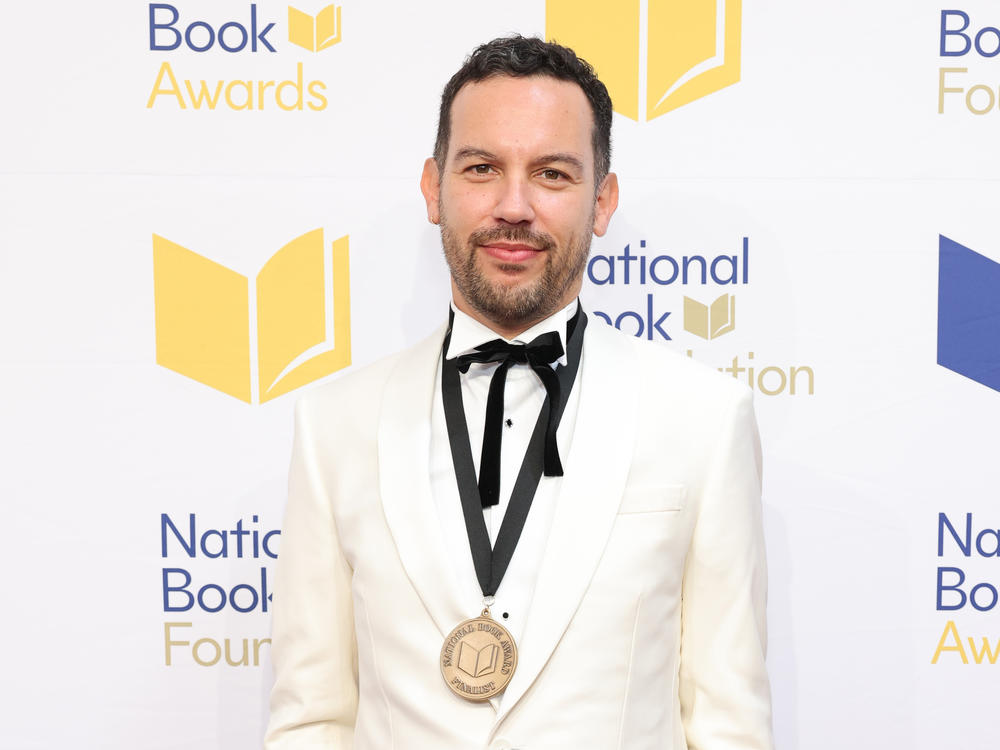Section Branding
Header Content
Justin Torres wins at National Book Awards as authors call for cease-fire in Gaza
Primary Content
Justin Torres' novel Blackouts is an ode to the erased and forgotten histories of queer people. And it is now the recipient of the National Book Award for fiction. But during his speech Wednesday night, he invited all the other finalists on stage to deliver a collective statement calling for a cease-fire in Gaza.
"We oppose the ongoing bombardment of Gaza," said Aaliayh Bilal, author of the book Temple Folk, standing in front of more than a dozen finalists. "We oppose antisemitism, and anti-Palestinian sentiment and Islamophobia equally, accepting the human dignity of all parties, knowing that further bloodshed does nothing to secure lasting peace in the region."
LeVar Burton hosted the ceremony, opening with a pointed dig at Moms for Liberty, the activist group driving many of the calls for books to be pulled from school shelves across the country. "Are there any moms for liberty in the house?" asked Burton. "No? Good. then hands will not need to be thrown tonight," he joked.
Special guest Oprah Winfrey also mentioned the rise in books being removed from public schools. "To ban books is to strangle off what sustains us and makes us better people," said Winfrey.
Here's the full list of winners:
- Young People's Literature: A First Time for Everything, by Dan Santat
- Translated Literature: The Words that Remain, by Stênio Gardel, translated by Bruna Dantas Lobato
- Poetry: from unincorporated territory [åmot], by Craig Santos Perez
- Nonfiction: The Rediscovery of America: Native Peoples and the Unmaking of U.S. History, by Ned Blackhawk
- Fiction: Blackouts, by Justin Torres
Rumors of the authors making a collective statement on the Israel-Hamas war were swirling ahead of the ceremony. The book company Zibby Media, pulled out of the proceedings as a sponsor. Founder Zibby Owens wrote on Substack that she asked event organizers if they would intervene if any of the winners' speeches were anti-semitic.
"My team and I pulled out because when I asked for an assurance from the [National Book Foundation] that they would be on top of this, that they would take swift action to address this if it became an issue," wrote Owens. "They did not provide any such assurances."
The National Book Foundation issued a statement re-asserting that winners were allowed to make brief remarks after winning, and that political statements were not unprecedented at the National Book Awards. "At this time of so much pain and suffering in our world, we believe writers' words—and the insight and inspiration they bring—are more important than ever."
Copyright 2023 NPR. To see more, visit https://www.npr.org.

